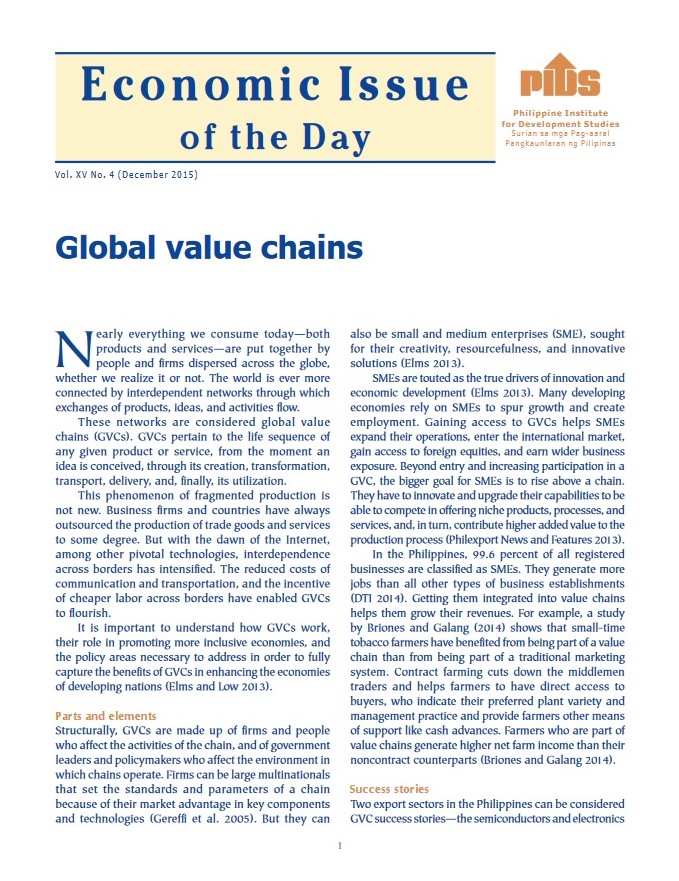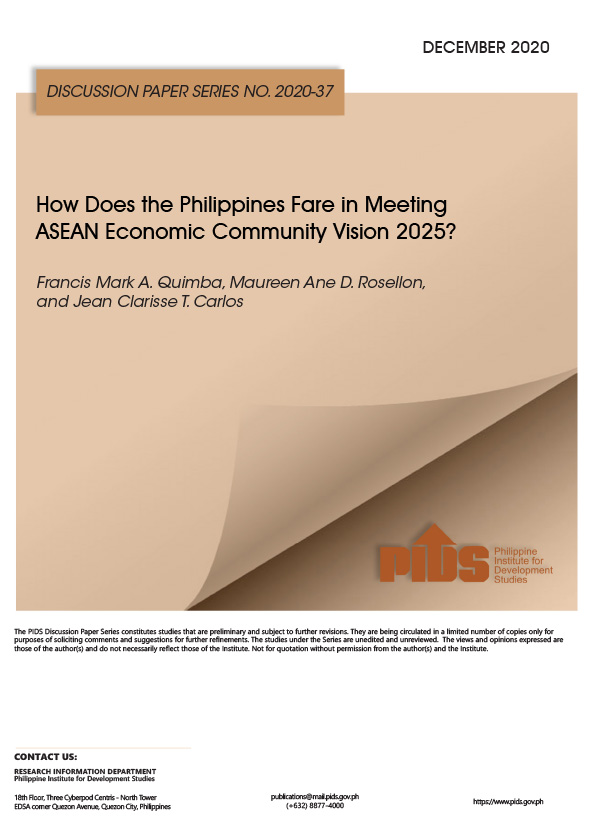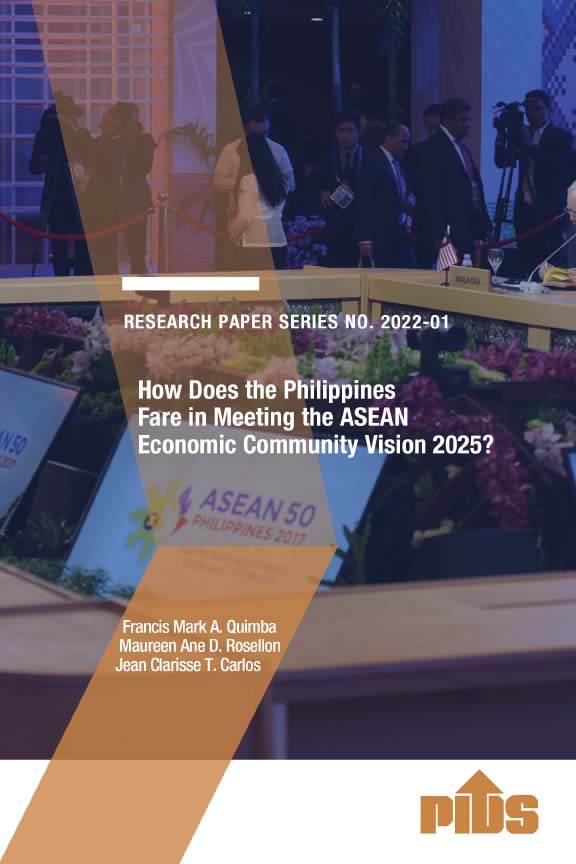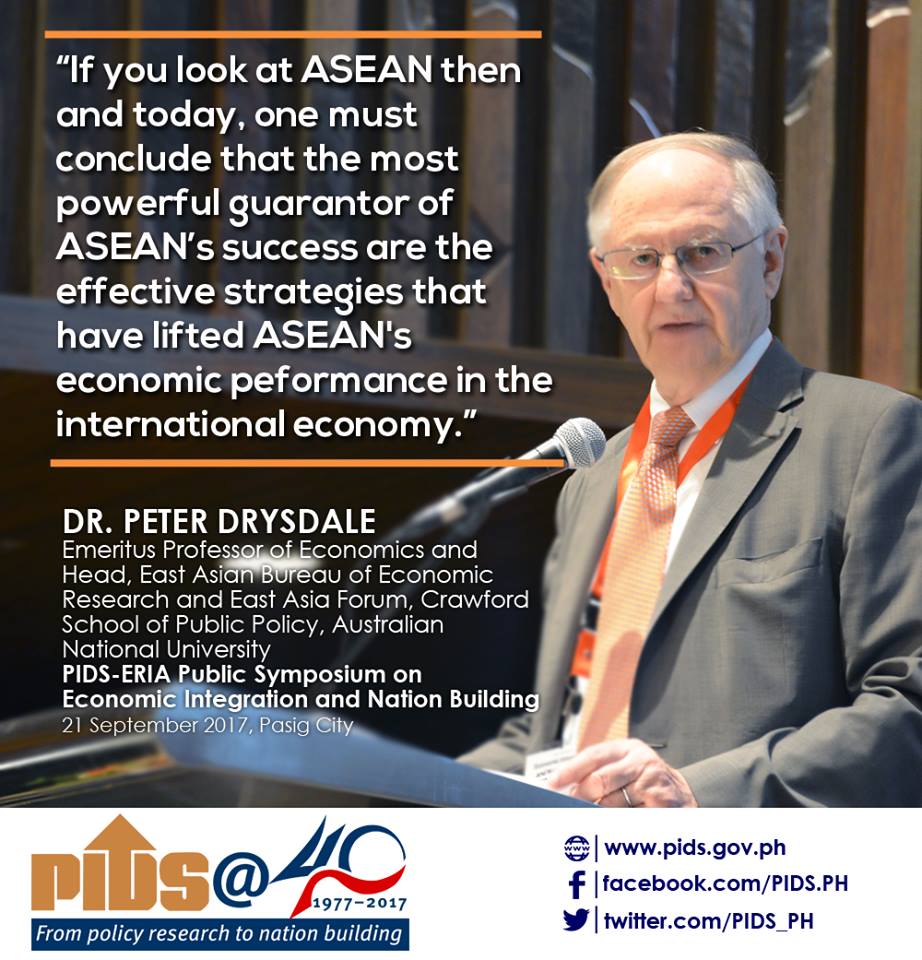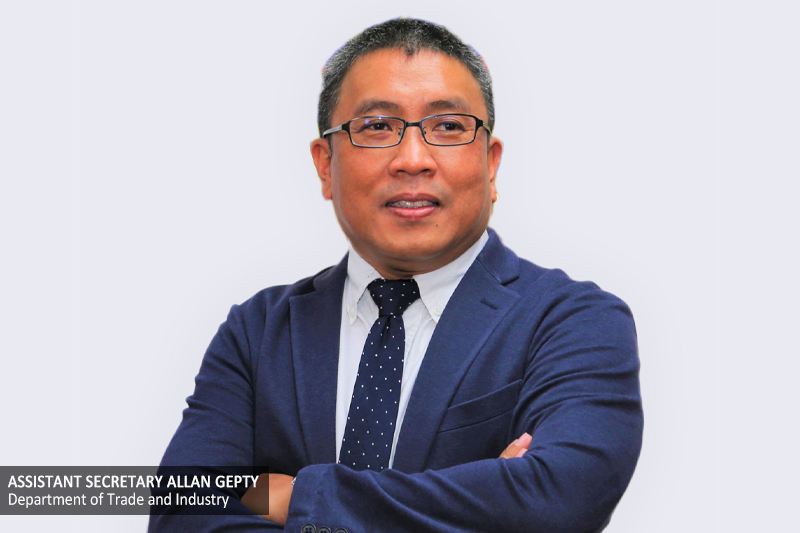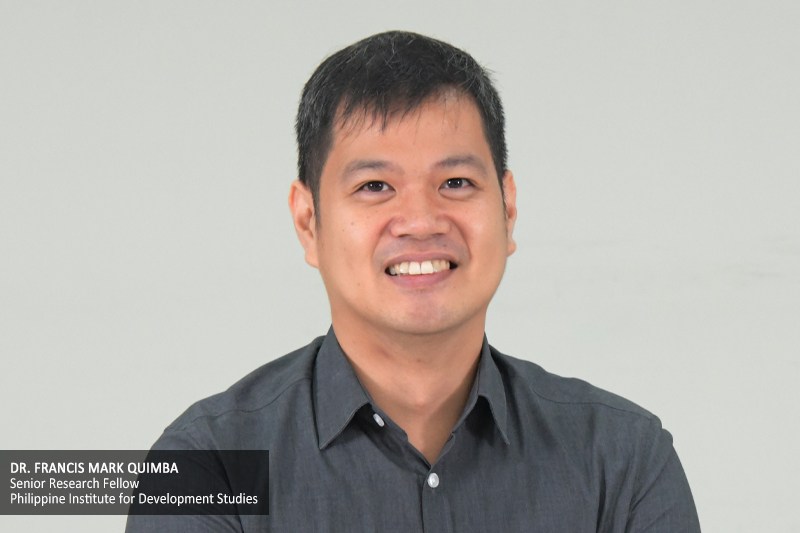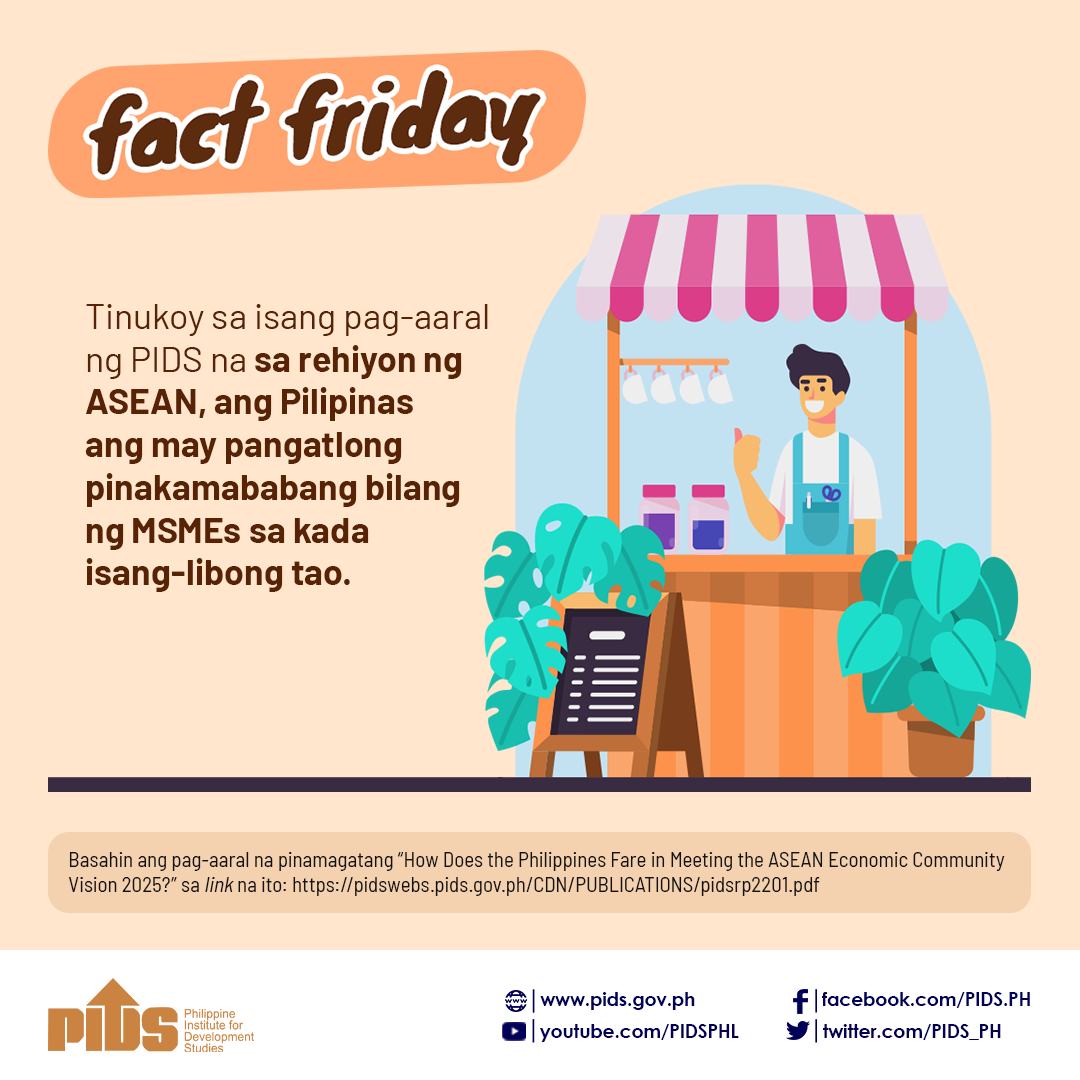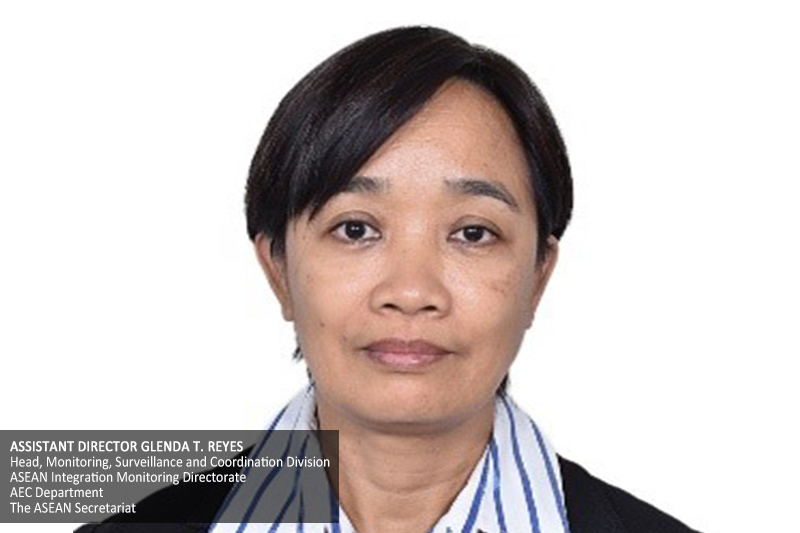
ASEAN countries must avoid the silo mentality and adopt a whole-of-government approach to move forward and achieve the ASEAN Economic Community (AEC) Blueprint by 2025.
This was according to Assistant Director Glenda T. Reyes, head of the AEC Department’s Monitoring, Surveillance and Coordination Division of the ASEAN Secretariat, during a webinar recently organized by state think tank Philippine Institute for Development Studies (PIDS) featuring the study “How Does the Philippines Fare in Meeting ASEAN Economic Community Vision 2025?”.
Reyes noted that a coordinated approach is necessary to enhance the region's participation in the global value chain (GVC).
“The key to enhancing participation in GVC [is the] successful implementation of the related elements under the different characteristics of the AEC blueprint. Thus, beyond trade facilitation, we should also pay attention [to] improving competitiveness, ensuring competitive services industry, attracting productivity, boosting investment, promoting innovation, developing human capital, and building local and senile industries,” she explained.
Reyes added that the ASEAN and AEC sectoral bodies, as well as member-states like the Philippines, could draw lessons from the Mid-Term Review (MTR) report, which assessed the implementation of the AEC Blueprint 2025.
The Blueprint aims to achieve the vision of having an AEC by 2025 that is highly integrated and cohesive; competitive, innovative, and dynamic; with enhanced connectivity and sectoral cooperation; and a more resilient, inclusive, and people-oriented, people-centered community, integrated with the global economy.
The MTR serves as an important and critical measure to improve the implementation of the AEC Blueprint and helps ensure that the ASEAN delivers its AEC targets and goals by 2025.
As highlighted in the MTR report, the AEC must “expedite the implementation of action lines or measures that have long been delayed to help fast-track the region’s recovery from the pandemic and build the foundation for long-term resilience”.
“The pandemic has given us the window for reflection and calls everyone and all member-states to build back better. This means that reforms that have long been delayed should be prioritized and undertaken with resolve,” she said.
The MTR report also emphasized the need for the AEC to “ensure the synergy of measures underlining the interconnected and interdependence of work across sectors which calls for strengthened coordination in planning, policymaking, implementation, monitoring, and evaluation”.
It also stressed the importance of mainstreaming good regulatory practices, adding that the “regulatory burden and lack of regulatory coherence are major obstacles” in implementing AEC initiatives.
“For [the] ASEAN to be agile, flexible, creative, and open to new ideas and conversations, there is a need to mainstream good regulatory practice to be proactive, to seize new opportunities and address emerging issues and challenges,” Reyes said. ###
You may watch the webinar at https://fb.watch/9vWHxB7jXP/ or https://youtu.be/q6vbtmQjbns.
This was according to Assistant Director Glenda T. Reyes, head of the AEC Department’s Monitoring, Surveillance and Coordination Division of the ASEAN Secretariat, during a webinar recently organized by state think tank Philippine Institute for Development Studies (PIDS) featuring the study “How Does the Philippines Fare in Meeting ASEAN Economic Community Vision 2025?”.
Reyes noted that a coordinated approach is necessary to enhance the region's participation in the global value chain (GVC).
“The key to enhancing participation in GVC [is the] successful implementation of the related elements under the different characteristics of the AEC blueprint. Thus, beyond trade facilitation, we should also pay attention [to] improving competitiveness, ensuring competitive services industry, attracting productivity, boosting investment, promoting innovation, developing human capital, and building local and senile industries,” she explained.
Reyes added that the ASEAN and AEC sectoral bodies, as well as member-states like the Philippines, could draw lessons from the Mid-Term Review (MTR) report, which assessed the implementation of the AEC Blueprint 2025.
The Blueprint aims to achieve the vision of having an AEC by 2025 that is highly integrated and cohesive; competitive, innovative, and dynamic; with enhanced connectivity and sectoral cooperation; and a more resilient, inclusive, and people-oriented, people-centered community, integrated with the global economy.
The MTR serves as an important and critical measure to improve the implementation of the AEC Blueprint and helps ensure that the ASEAN delivers its AEC targets and goals by 2025.
As highlighted in the MTR report, the AEC must “expedite the implementation of action lines or measures that have long been delayed to help fast-track the region’s recovery from the pandemic and build the foundation for long-term resilience”.
“The pandemic has given us the window for reflection and calls everyone and all member-states to build back better. This means that reforms that have long been delayed should be prioritized and undertaken with resolve,” she said.
The MTR report also emphasized the need for the AEC to “ensure the synergy of measures underlining the interconnected and interdependence of work across sectors which calls for strengthened coordination in planning, policymaking, implementation, monitoring, and evaluation”.
It also stressed the importance of mainstreaming good regulatory practices, adding that the “regulatory burden and lack of regulatory coherence are major obstacles” in implementing AEC initiatives.
“For [the] ASEAN to be agile, flexible, creative, and open to new ideas and conversations, there is a need to mainstream good regulatory practice to be proactive, to seize new opportunities and address emerging issues and challenges,” Reyes said. ###
You may watch the webinar at https://fb.watch/9vWHxB7jXP/ or https://youtu.be/q6vbtmQjbns.

